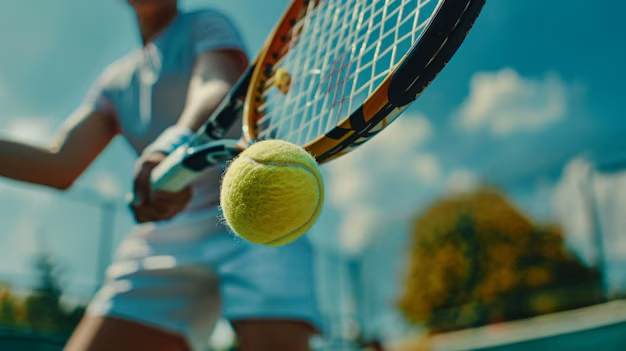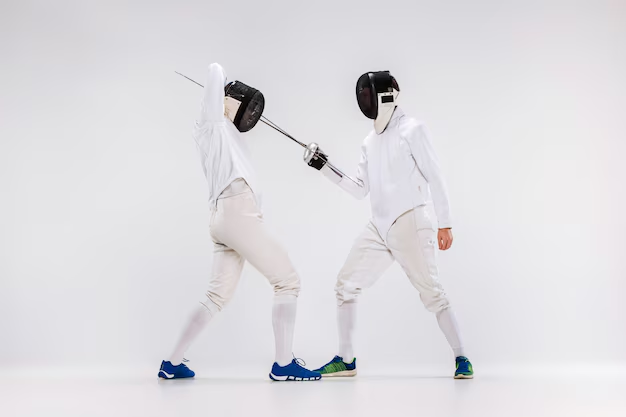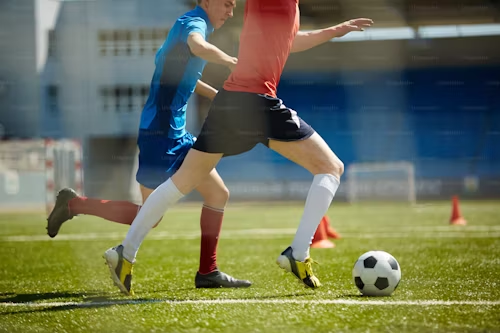Know French Sports: Which Olympic Sports have French Origins
In the spirit of the Olympic season in Paris, we have compiled a short history of sports originating in France. You can read more about French sports down below.
It is no news that the French historian and educator, Pierre de Coubertin, helped pioneer the modern Olympic games. His contributions towards the global sports tradition and community remain innumerable.
But, the French sport’s history did not start with the baron of Coubertin. There exists a lasting impact on sports worldwide, thanks to ordinary French people like you and me. While their names may never be known, it is because of those people who shared our mutual love for sports that we enjoy much of the games today.
French Sports Included in the Olympic Programme
Many sports popular today, with people playing them in streets worldwide or practising professionally, have a French origin. These games either are directly invented by the French people, or their origin can be etymologically placed in France. Some of these sports, now an undeniable part of the Olympic events, include tennis, cycling, fencing, and football.
Tennis

Tennis is a widely loved sport with fans spread out across the world. Players like Rafael Nadal, Serena Williams. Roger Federer, and Billie Jean King have left an undeniable mark on sports history. The sport’s origin can be traced to 12th–13th-century France. Back then, they called it jeu de paume (“game of the palm”), derived from a complex indoor racket-and-ball game. This historical point of evolution makes tennis originally a French sport.
How did the word ‘tennis’ come to be? Jeu de paume was the native name for the sport that we now know as tennis. There was also a historical act of defiance by the nonprivileged classes of the French nation called ‘Serment du Jeu de Paume’ (Tennis Court Oath) at the start of the French Revolution. This is how the French sport became a rallying point for revolutionary forces.
The ball-and-raquet game started being called ‘tennis’ after the English adopted the game around the 15th century. The word ‘tennis’ is a phonetic transfiguration of Tenez ! – or the imperative verb form of the French verb tenir (to hold). The player serving the ball to their opponent shouts ‘Tenez !” or “Here you go!”
Tennis was part of the first modern Olympic games, held in Athens in 1896, and it remained so until the eighth Olympiad in Paris in 1924. The management removed the sport from the programme due to official differences. Tennis made its Olympic return as a demonstration sport in 1968 and 1984 and has featured on the Olympic programme since the 24th Olympiad in Seoul in 1988.
Cycling

Cycling is yet another French sport that is part of the Paris Games 2024. The Olympic event is over with the Belgian cyclist Remco Evenepoel taking the gold. Yet, it’s still interesting to note the European origins of the sport.
Although the vehicle itself is a German invention, the sport has French origins. How does this leap between two nations come to be? The story goes about how Baron von Drais de Sauerbon invented a two-wheeled rider-propelled machine. He rode it for 14 kilometres in 1917 and exhibited it in Paris the following year. The inital names were again anglicised into ‘bicycle’, the stem being derived from Old French cicle. Cicle meant “circle, wheel, any circular body, circular motion, a cycle of events”
Le cyclisme as a sport officially began in Paris in 1868, with a 1,200-metre race in Saint-Cloud Park. The winner was James Moore, an 18-year-old expatriate Englishman from Paris. The first city-to-city race was held in 1869 between Paris and Rouen. Again, Moore was the winner, having covered the 135 km (84 miles) in 10 hours and 25 minutes, including time spent walking his bicycle up the steeper hills. Before Evenepoel, there was Moore!
Cycling was included in the very first modern Olympic Games held in Athens. Currently, the Olympic cycling event features track cycling, road cycling, mountain biking, and BMX. In 1903 the 21-day-long. Apart from the Olympics, there are many cycling competitions including Tour de France – “the world’s most prestigious and most difficult bicycle race.”
Fencing

Different forms of swordplay have existed since the birth of civilisation. Ancient races like the Egyptians, Persians, Greeks, and Romans give proof of pictorial representations of the sport. These depictions include sparring matches between swordsmen wearing masks, bibs, shields, padding, or other forms of protective gear.
Fencing is an organized sport involving the use of a sword—épée, foil, or sabre—for attack and defence according to set movements and rules.
While medieval England criminalised the education of sword-related activities, the French school of sword fighting was an academic form. It emphasised strategy and form, which is also why much vocabulary related to fencing comes directly from France, such as épée and rapier. The French also established the rules of the sport and safety measures like the use of masks and foils.
Fun fact: fencing is called ‘escrime’ in French!
Fencing has been part of the Olympic Games since their revival in 1896. In 1900 during the Second Olympiad, the first ever Paris Olympics, the épée joined the foil and sabre as individual events in the programme. Moreover, the Fédération Internationale d’Escrime (International Fencing Federation) was founded in 1913 to standardise rules and organise international competitions.
Football

The origin of football is also a bone of contention between England and France. Modern football is said to have originated in Britain in the 19th century,. However, an earlier version of the same sport can be dated back to Brittany and Normandy during the Middle Ages (500-1500AD). Back then, it was called la soule (literally called ‘the ball’).
The aim of this ancient outdoor sport, which had many different variations, was to place a small wooden ball in a hole, a tree hollow, or another distinctive place. Sometimes, the ball was also replaced with a pig’s bladder, stuffed with straw. Interesting, no?
1900 Summer Olympics held in Paris introduced football into the programme, which was not included in the inaugural Olympiad in Athens in 1894. Since then, football has been a part of every Summer Olympiad with the exception of the 1932 Games (to promote the newly established FIFA World Cup). Women’s football was introduced to the official program at the Atlanta 1996 Games.
Ever wondered why Americans call football ‘soccer’ and rugby ‘football’? Click here to find out more about this lingual difference (Psst, it’s not the same as ‘colour vs color’).
Other French Sports That You Need to Know
The inclusion of a sport into an international event such as the Olympiad is not the only merit of its value to the country. Games that we are taught at a parent’s knee and the ones we play with our friends from the neighbourhood are quite dear to us. Similarly, many other games originate in France but are not yet part of the Olympic programme.
Automobile Racing

Automobile racing, also called motor racing, began soon after the invention of the petrol-fueled internal combustion engine in the 1880s. The first organised automobile competition, a reliability test in 1894 from Paris to Rouen, France, a distance of about 80 km. In 1895, the first true race was held, from Paris to Bordeaux, France, and back.
Motorsport has been featured twice at the Summer Olympics during the 1936 Munich Games and 1972 Berlin Games, even though it was not officially recognised as part of the tournament. When it first appeared in 1900 in Paris, the games were run alongside the World’s Fair. Lasting seven months, it aimed to celebrate the sports achievements of the previous century. This Olympic Rally was run before the event started and historically has not been considered part of the Olympics.
Charles Leclerc believes that the inclusion of the sport in the Olympic programme is not entirely out of the question. Leclerc, a retired Monacan motorsports racing driver, was the torchbearer through Monaco for the Paris Games 2024. The racing driver remains hopeful for the future. With squash and flag football making their debut at the Los Angeles games in 2028 alongside cricket and lacrosse set to return.
Péntaque
The name pétanque comes from petanca, deriving from the expression pès tancats, meaning “feet together” or “feet anchored.” This French sport has many names in different languages. The gameplay involves the throwing of hollow metal balls as close as possible to a small wooden ball called a cochonnet (literally “piglet”) or jack while your feet remain firm on the ground (hence called ‘feet anchored’).
The game is normally played on gravel or hard dirt, but like tennis, it can also be played on other surfaces like grass or sand. Similar games include bocce and bowls. The current form of the game originated in 1907 in La Ciotat, in Provence, in southern France.
By the 19th century England, the game had become “bowls” or “lawn bowling.” In France, it was known as boules, and was played throughout the country. The French artist Meissonnier made two paintings showing people playing the game, and Honoré de Balzac described a match in La Comédie Humaine.
Although the World Federation of Pétanque has persistently lobbied for the French sport’s inclusion in the Olympic programme since 1985, pétanque has yet to secure a place. Despite that, the World Championships are held every other year with around 50 countries participating.
French Sports - A Religion, A Lifestyle

The list of French contributions towards the evolution of sports is too long to be put into words. French sports reflect the country’s rich cultural and sporting heritage. This legacy has had a lasting impact on the global sports community. Games of any and every kind are an integral part of our individual lives. Whether they are part of international sporting events or not, their significance in any country’s history should not go unrecognised.





